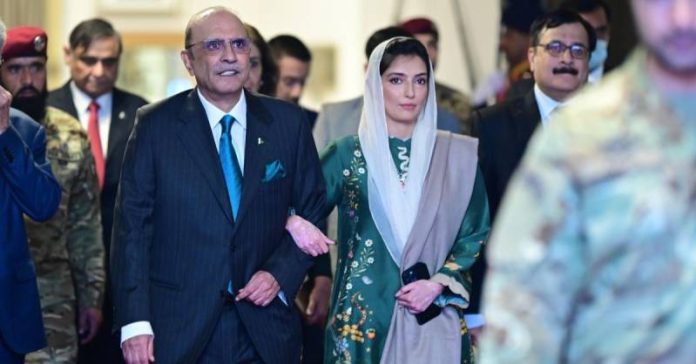The acknowledgment of Asifa Bhutto as the First Lady of Pakistan by President Asif Zardari marks a historic moment in the country’s political landscape. Asifa Bhutto, being the daughter of former Prime Minister Benazir Bhutto and President Zardari, inherits a legacy deeply entrenched in Pakistan’s political history. This declaration not only highlights the significance of familial ties in Pakistani politics but also signals a shift towards recognizing the role of women in leadership positions.
As the First Lady, Asifa Bhutto Zardari will assume a prominent role in representing the nation alongside her father, the President. This acknowledgment bestows upon her the responsibilities, privileges, and protocol associated with the position, providing her with a platform to advocate for causes close to her heart. It also symbolizes a departure from traditional gender roles, showcasing the potential for women to hold influential positions within the highest echelons of power.
Furthermore, this development holds broader implications for gender equality and women’s empowerment in Pakistan. By officially recognizing Asifa Bhutto as the First Lady, President Zardari sets a precedent for future generations, encouraging more women to aspire to leadership roles and challenging societal norms that may have previously restricted their participation in politics.
Overall, the formal acknowledgment of Asifa Bhutto as the First Lady of Pakistan represents a significant step towards gender inclusivity and the recognition of women’s contributions to governance and leadership. It reflects a progressive approach towards embracing diversity and empowering women to play active roles in shaping the future of the nation.


